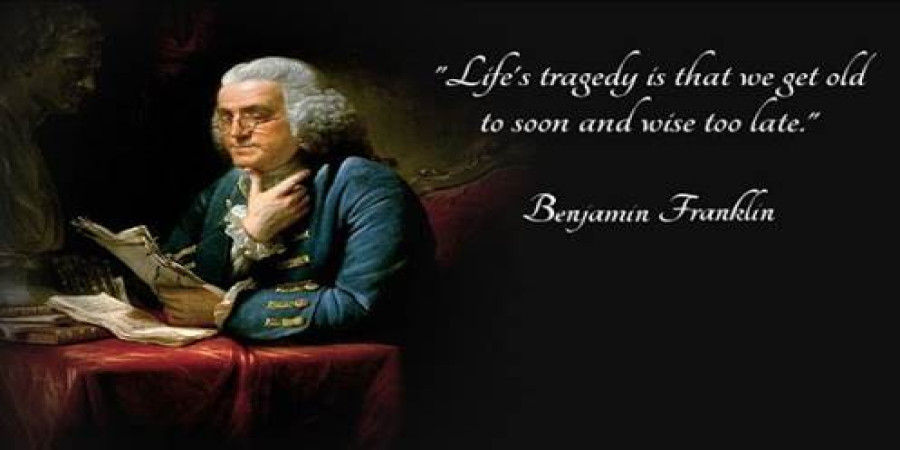

The Wisdom Trap: Why We Get "Old Too Soon & Wise Too Late"
The adage "old too soon, wise too late" encapsulates a bittersweet truth about the human experience. It suggests that we often gain true wisdom only after the prime of our lives has passed. This puzzling proverb invites us to examine why we fall into this pattern and how we might break free from it.
Unpacking the Proverb
Let's dissect the two parts of this saying:
- "Old too soon": This doesn't solely refer to physical aging. It speaks to the weariness we often accumulate early in life—the mental and emotional toll taken by societal expectations, stress, and our focus on external goals over internal reflection.
- "Wise too late": True wisdom isn't just knowledge. It encompasses self-awareness, a balanced perspective, and the ability to discern what truly matters. Sadly, this kind of wisdom often develops as a byproduct of life's challenges, losses, and accumulated experiences as time goes on.
Why the Wisdom Trap Exists
Here are some factors that contribute to this phenomenon:
- Prioritizing the immediate: We live in a fast-paced world obsessed with youth and productivity. This creates a strong push toward material gain and outward achievements, often at the expense of introspection and cultivating inner wisdom.
- Mistaking information for wisdom: We are bombarded with information but have less time to truly process and integrate it into meaningful insights. Knowledge does not automatically equate to wisdom.
- Fear of vulnerability: Deep reflection requires vulnerability, facing our own flaws, and being open to change. Many avoid this discomfort, opting to maintain the status quo.
Escaping the Wisdom Trap
While time is a natural factor in gaining wisdom, we don't have to resign ourselves to gaining it too late in life. Here are some ways to accelerate the process:
- Intentional reflection: Carve out time for journaling, meditation, or simply pondering life's big questions. Don't just consume information; reflect on its implications for you personally.
- Seek experiences: Step outside your comfort zone. Travel, learn new skills, engage in meaningful conversations. Diverse experiences offer opportunities for growth we can't get from a textbook.
- Mentorship: Seek out wise individuals you admire. Their insights and example can fast-track your own journey of self-discovery.
The Gift of the Proverb The saying "old too soon, wise too late" might feel bleak. Yet, its true value lies in the motivation it offers:
- Live with greater intention: If we understand that wisdom is precious and time is limited, we are more likely to make choices that nurture our inner growth and prioritize meaningful experiences.
- Appreciate the present: The proverb reminds us that each stage of life has value. Let's aim to extract wisdom from our current experiences, even if that wisdom feels incomplete.
- Never stop learning: A wise person never stops seeking understanding. Maintain a sense of curiosity and openness to new perspectives throughout your life.
References
- [Benjamin Franklin quote on wisdom]
- The Difference Between Knowledge and Wisdom
In the end, the key is to be mindful. By recognizing the "wisdom trap" we all face, we can strive to become exceptions, cultivating wisdom alongside youthful energy and making the most of the vibrant tapestry of life.
Popular articles

Apr 11, 2024 07:40 PM

May 25, 2024 08:09 PM

Apr 11, 2024 07:22 PM

Apr 10, 2024 07:59 PM

Mar 14, 2024 07:53 PM
Comments (0)